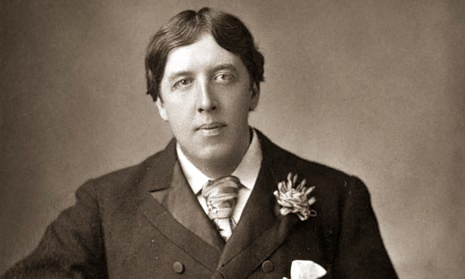How Oscar Wilde’s Greatest Creation was Himself: There are two types of people in this world: the predictable ones and the unpredictable. The latter is always a threat to the former. They are messy, dramatic, and artistic. They see life beyond what society wants them to see. Oscar Wilde was one of those people, the one who broke all boundaries and went above and beyond in the classical theatre of the 19th century, where every single day manners were rehearsed, morals were performed, and reputations were staged.
Wilde was the perfect embodiment of his own work. Draped in velvet and in exquisite jewels, constantly redefining masculinity.
Every single word that he wrote provoked the reader to think. Wilde once wrote, “one should either be a work of art or wear a work of art,” and he stays true to his word. He wears it every single day, unlike people wearing masks, hiding their true identities behind the shield of a facade, fooling themselves or maybe convincing others.
How Oscar Wilde’s Greatest Creation was Himself
In “The Soul of Man under socialism,” Wilde argued that the highest form of existence is not conforming to the rules and the laws. It is self-creation. We are often told that dreams are limited, but have you ever considered what’s stopping us from fully accepting and creating who we are? So to make one think, Oscar Wilde made himself the experiment, with his fancy silk clothing, the Lily in his hand, his very flamboyant actions, and the lectures that he delivered. They made him who he was. They made him art.
But at the end of the day, art is deceptive.
It makes one believe that what is on the surface is the truth, that it is the reality of a person, but what we don’t realise is that art can be shallow. It creates a false mirage; the closer you are to the actual answer, the further it takes you from it. So was the case with Wilde.
All the shimmer ended up being just a distraction from who he really was. As much as he tried to conceal it. It somehow got reflected in one of his very famous writings, The Picture of Dorian Gray. And when Oscar Wilde quotes, “behind every exquisite thing that existed, there was something tragic.” He might have written it about himself.
Wilde was extremely pretentious about beauty, and it transcended over time. And Dorian Gray was just a reflection of Wilde’s fractured soul. Each one of the characters represents him. Basil represented Oscar Wilde’s moral conscience and artistic devotion, Lord Henry showcased his paradoxes, while Dorian Gray portrayed his obsession with youth and pleasure.
But since every coin has two sides, every reflection that we see in the mirrors hides the truth behind it, sometimes beautiful and sometimes equally haunting. Just as the portrait of Dorian Gray hid all the scars of the sins he committed. Oscar Wilde was no saint either. His public trials and imprisonment were enough proof of that. Each one of his writings from prison portrays a deep sorrow, yet still has beauty to it. That made us believe that his artistry was not just a costume but was his truth.
But this makes one ponder upon the question that was Wilde’s greatest creation. Was it the environment in which he penned the poems he recited or the essays he argued, or was it simply him? He moved with such rebellion and resilience that every single table that he was at was his own party. Scandal, myths, rhythm — every single line blurring the lines between life and art until neither could be told apart.
The candle that burns too fast and burns too bright often forces society to extinguish it, to finish it before the smoke of its presence takes over the senses of those under its effect. And maybe this was Oscar Wilde’s tragedy, or maybe his greatest win.
It was his play, and he burnt it all down in flames, being both the actor, the play, and the entire theatre. His downfall was an irreversible closing act. His encore was the legend that he had become, one that refuses to fade. Hence, he proved that his aesthetics were never just an ornamentation but a destiny that he was to meet, and that is how, in the end, Oscar Wilde became the flame himself. Absolutely brilliant, consuming, and yet so unforgettable.















